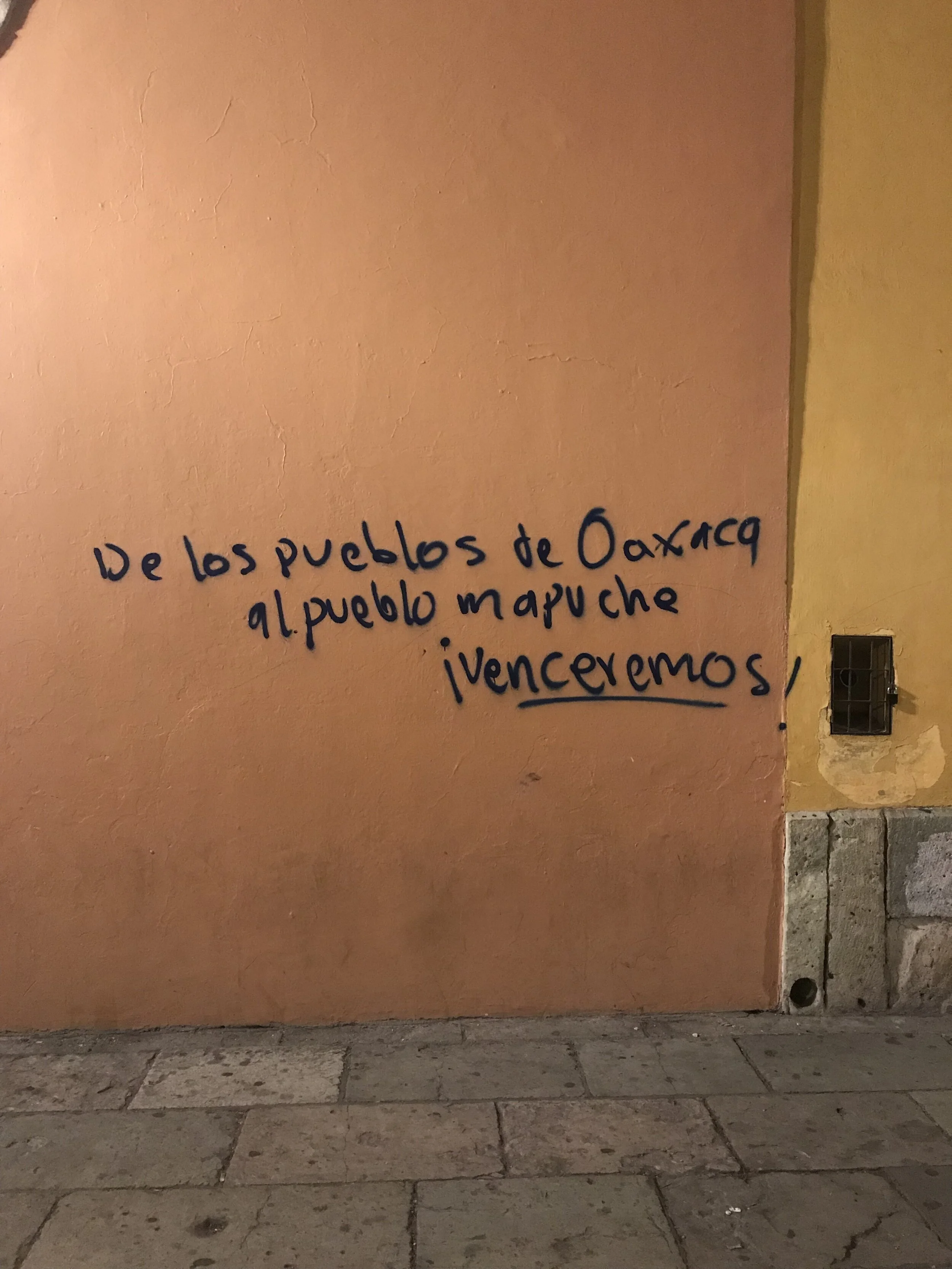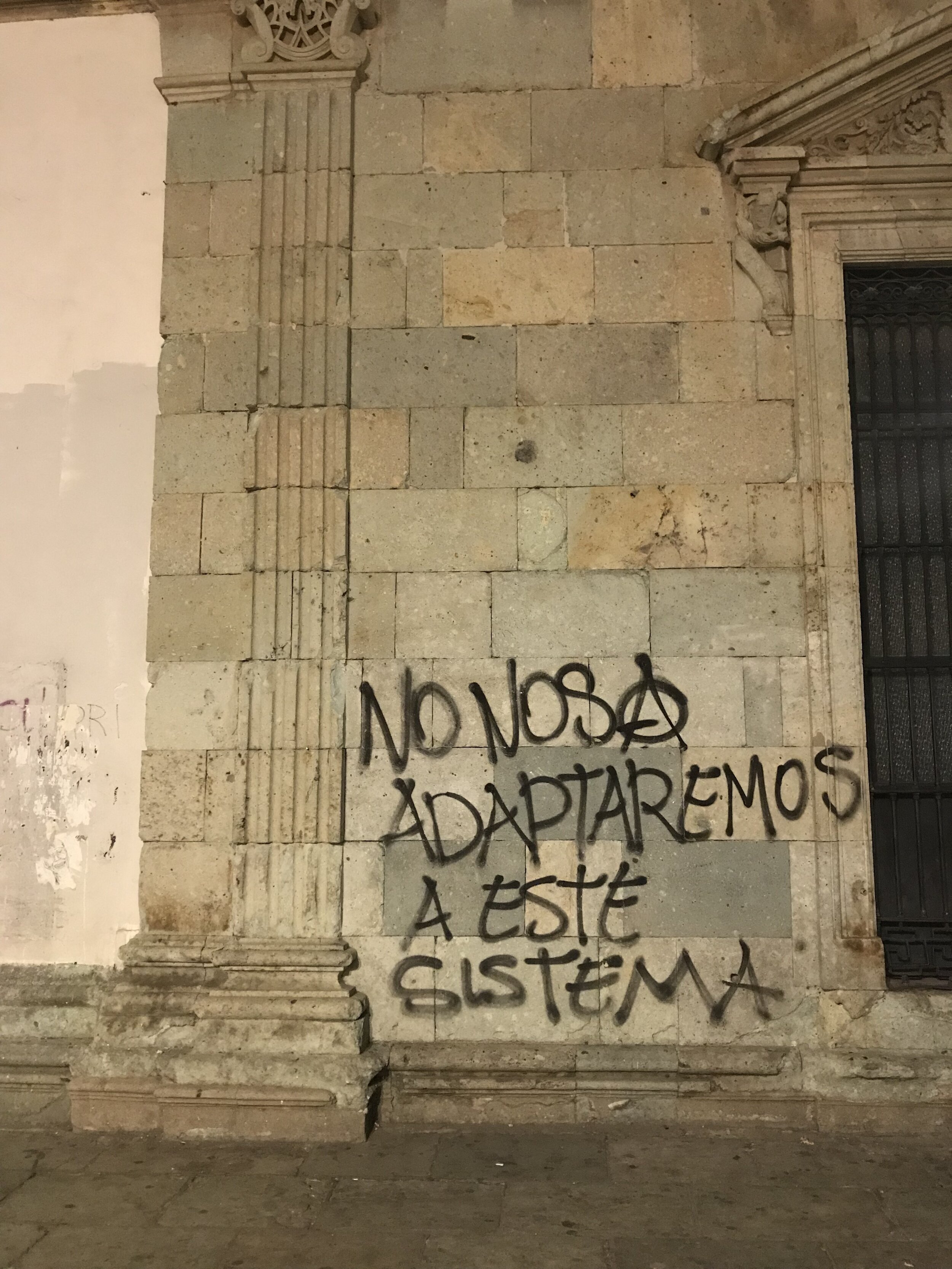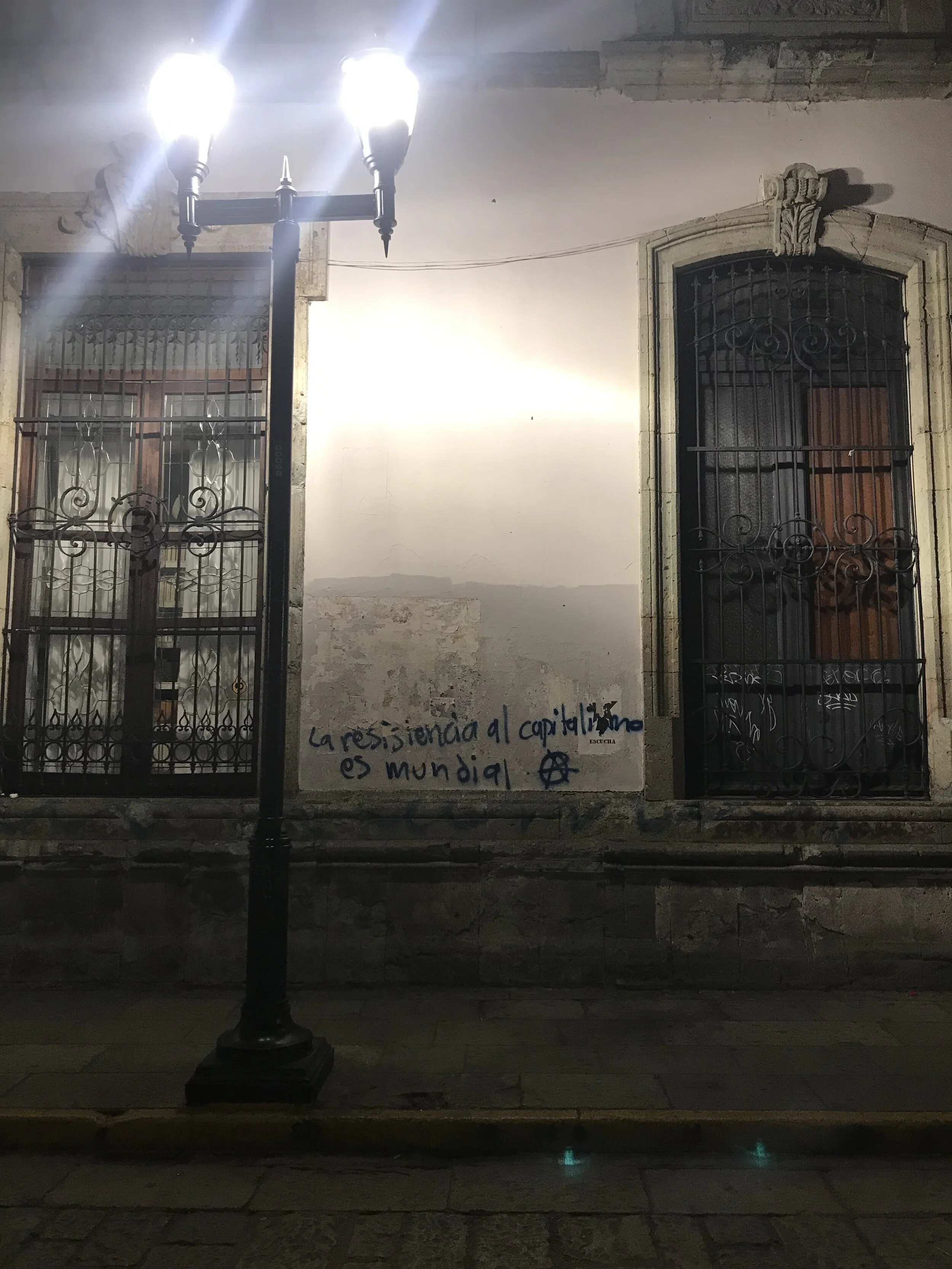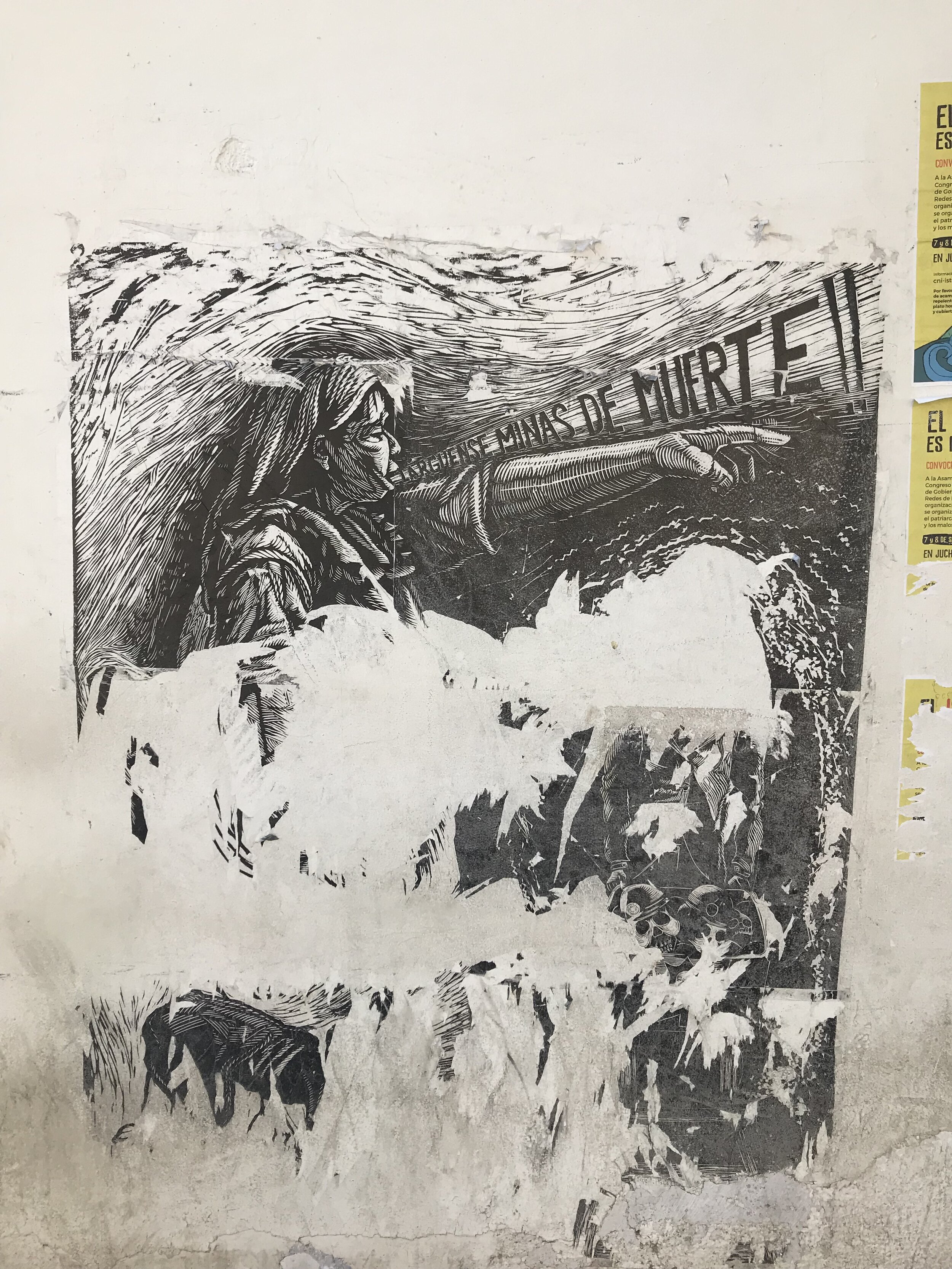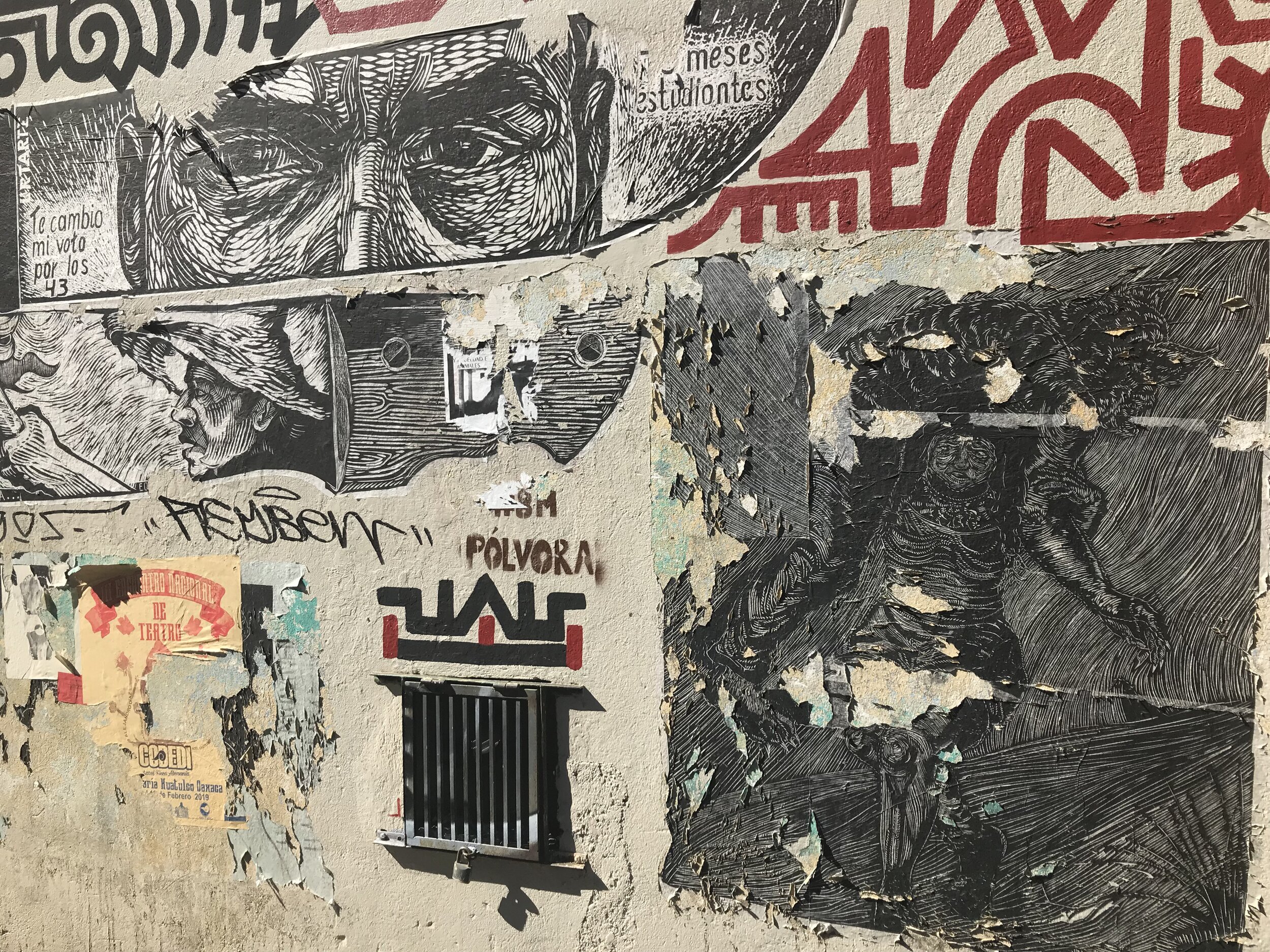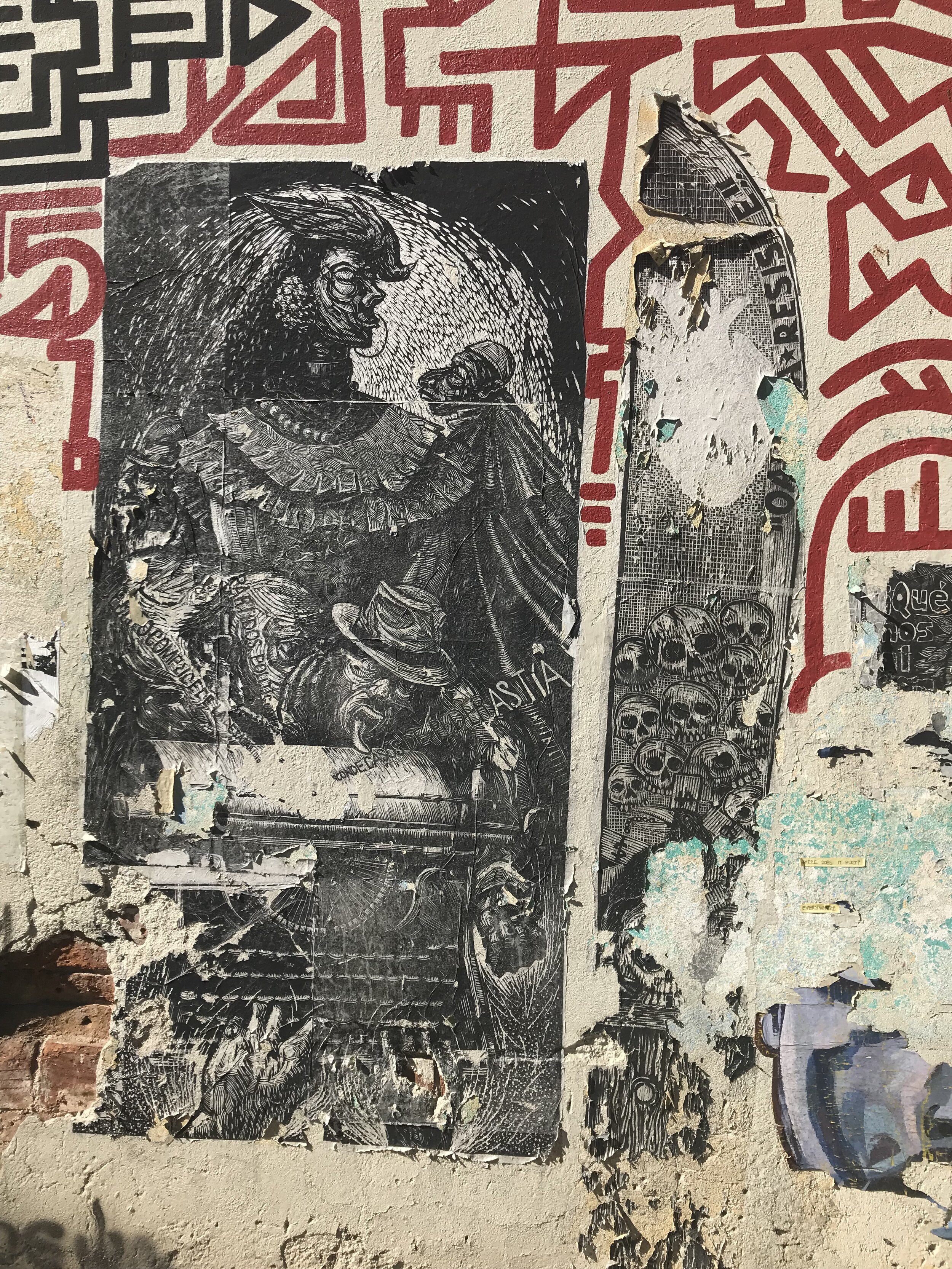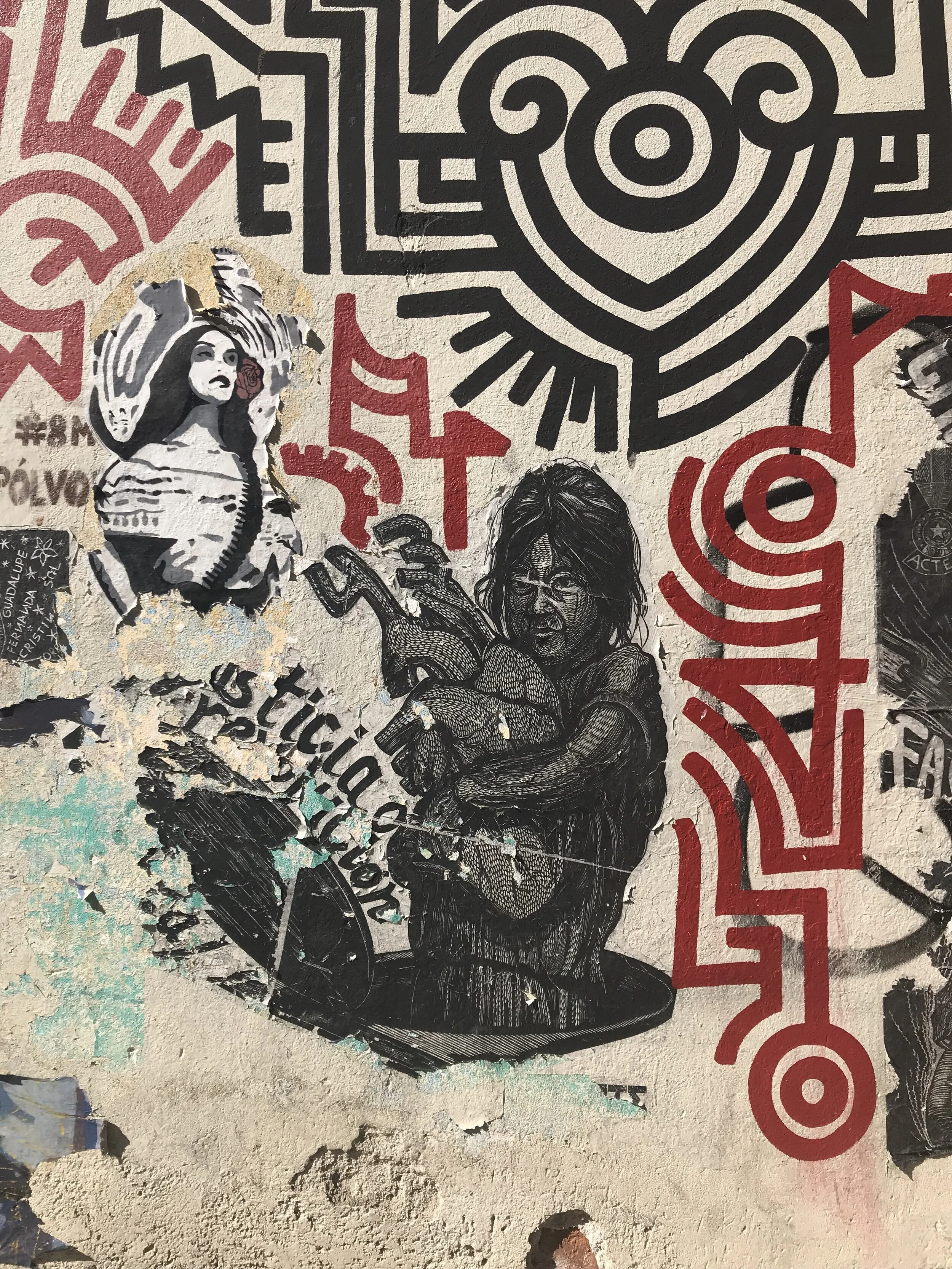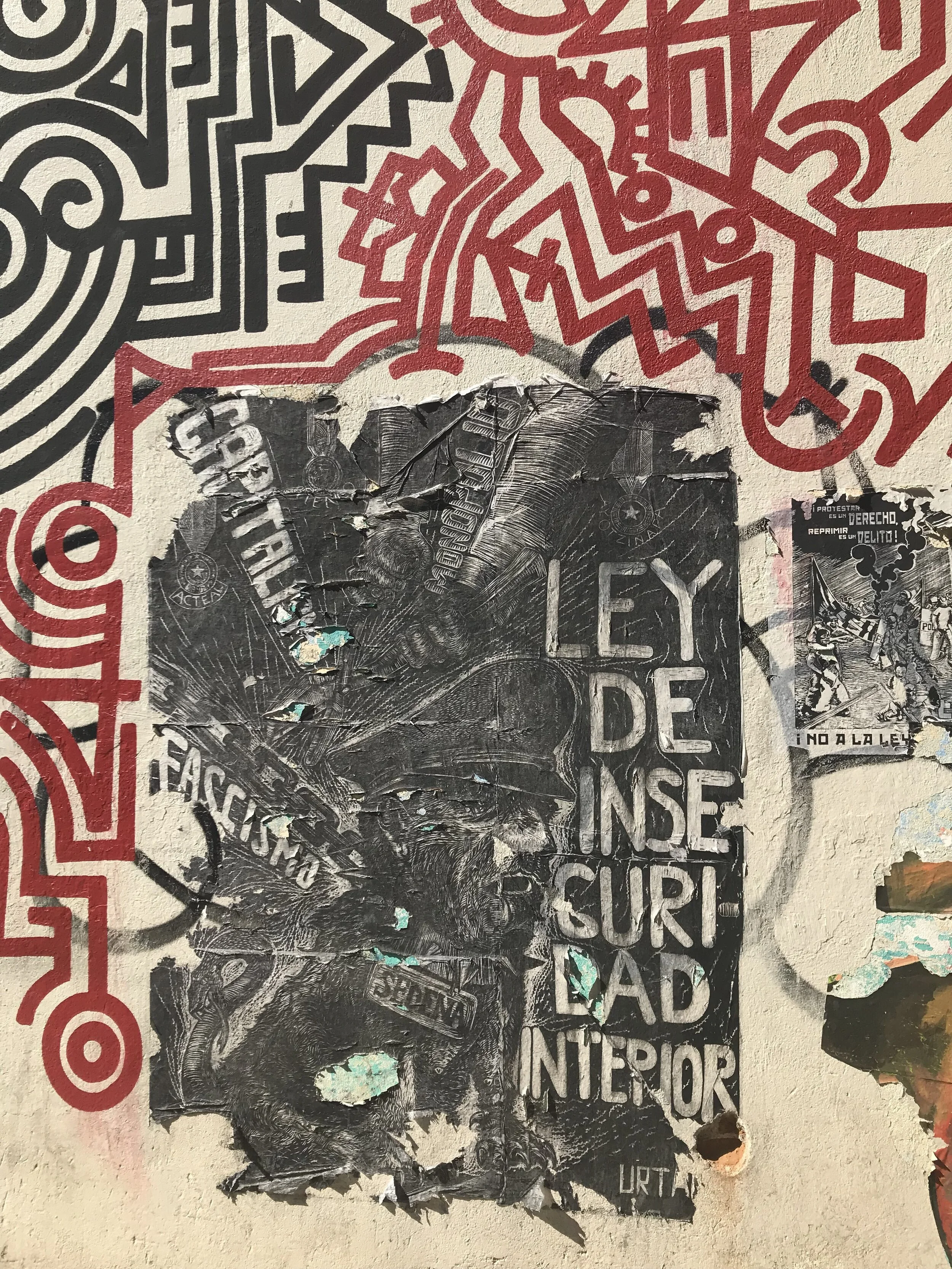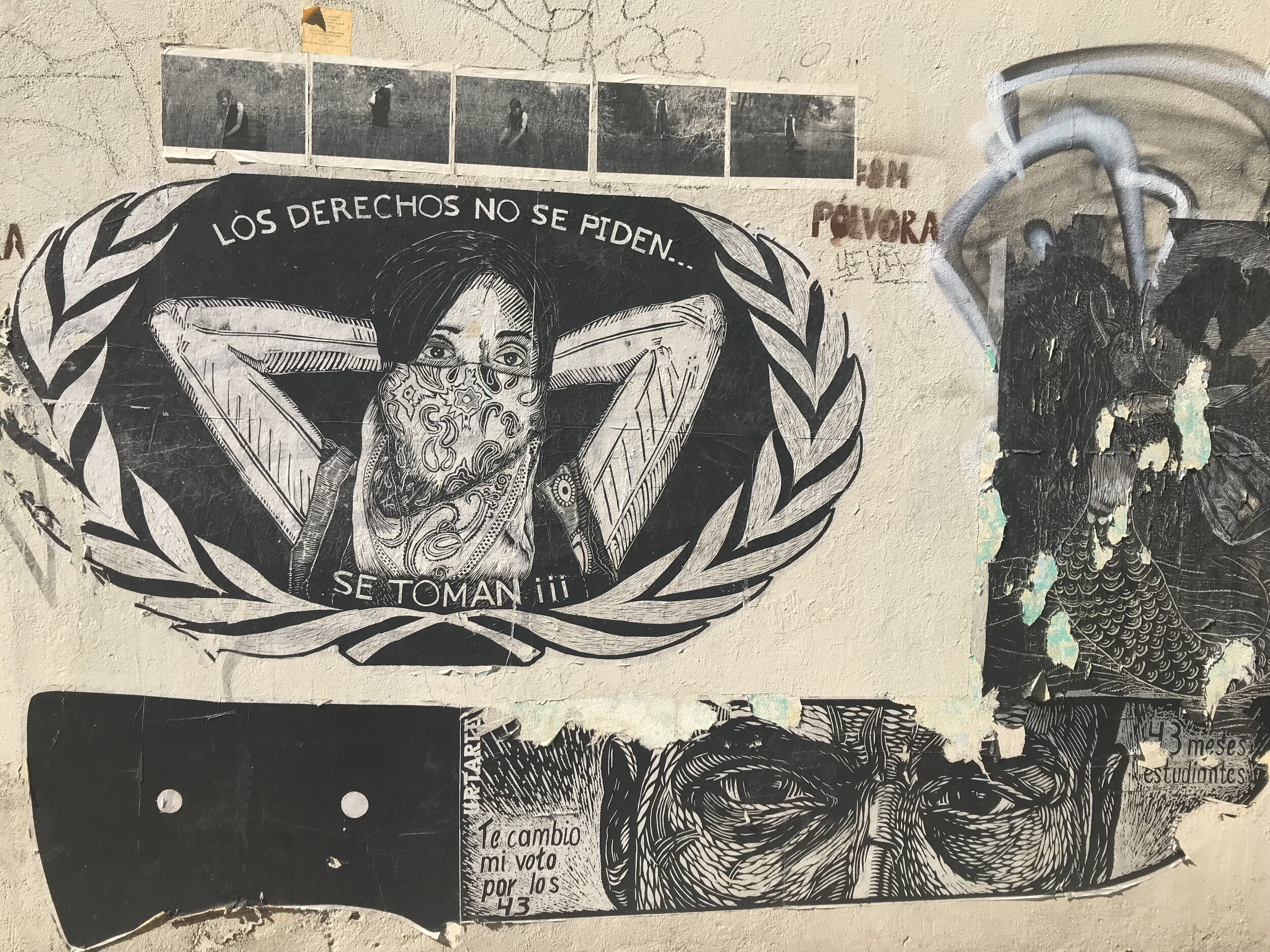voces visibles y presentes
by andrea
I just took a trip to Oaxaca from Ciudad Juarez last week. We crossed the Santa Fe bridge into Ciudad Juarez’s downtown morning border hustle. The morning was cold and windy. In all my years going to Juarez, I had never seen so many tents lined up along the bridge entrance. This small tent city is located on a small side-street used to access the bridge and to for buses to pick up commuters. The makeshift tents made from tarp and rope belong to migrants in purgatory, just waiting to make it to the US at some point, some how.
Some people were just waking up, but instead of waking up in a warm bed, with a roof over their heads, they were opening their tents amongst passing cars, pedestrians, peseros, stray dogs, shouting vendors, and unforgiving weather. It seemed that they had been there for some time based on their establishments, and have likely endured the merciless Juarez heat and piercing desert cold. The majority of these displaced people are young men and women, some middle-aged, and worst of all, young children, some infants, toddlers, pre-teens. Despite their dismal surroundings, children were out playing together and running amongst the crowds of people, laughing without the notion of how inhumane and unjust this life has been and continues to be to them. Since I was passing through, I did not take photos or get to talk to anyone. I feel uncomfortable just being able to write this from the comfort of my desk, or to have been able to walk through this tent block, knowing I have a safe place to call home, while they have no idea what will happen to them or their children at any given moment.
“NO NOS ADAPTAREMOS A ESTE SISTEMA”
These powerful images of displacement, desperation, and violence are only steps away from us on the border. Any time I go to Mexico, it never takes long before I find graffiti, artwork, murals, or protests (even small-scale) taking place. Mexico, despite its all-encompassing beauty, is such a tough place to live for many of its own citizens. Work is hard to find, people disappear, women are sequestered and killed every hour, politicians are corrupt to the core, infrastructure falls apart, cartels own the government - yet its people find a way to speak up, whether it is through street art or demonstrations. Sure, corruption and injustice occurs on a large scale in the US too, but it’s highly marginalized in that most of us are too comfortable to band together and speak up against the different embedded injustices taking place in our backyards. This doesn’t mean protests don’t happen here - they certainly have and there are advocates for justice here too, but it’s not as unified or visible or constant as it is seen in the streets across the border and beyond.
If we truly want change to happen, not just for ourselves but for the truly marginalized, impoverished, addicted, homeless - what are we doing? Commenting on the internet? Buying more stuff? Signing an online petition? What about taking to the streets - painting our towns - chanting our hymns? Something I hadn’t realized until my partner pointed it out to me is that so many of our friends/peers don’t talk about current events, nor show a desire to band together and take action against just how wrong everything really is under the surface - we are guilty of it too, and I think that is all owed to our available comfort, our work culture, and social media distractions. Many of us may not be living the same struggles as our Mexican neighbors, but our everyday luxuries all come at a cost for someone, and we keep buying into this façade. We shouldn’t have to be living in a tent to stand up for ourselves and others, we have the means, the bodies, the voices, the technology, the minds to spread messages, and we should feel angry, angry that systems in place around the world are designed to keep human beings poor, starving and overworked, people in power making thousands of dollars a minute, pointless bloody wars being endorsed and fought, people disappearing, people displaced. Nothing can be fixed overnight, and certainly not everyone can be saved at this point, but almost worse than all the evil in this world, is the complacency that sits right there next to it.
